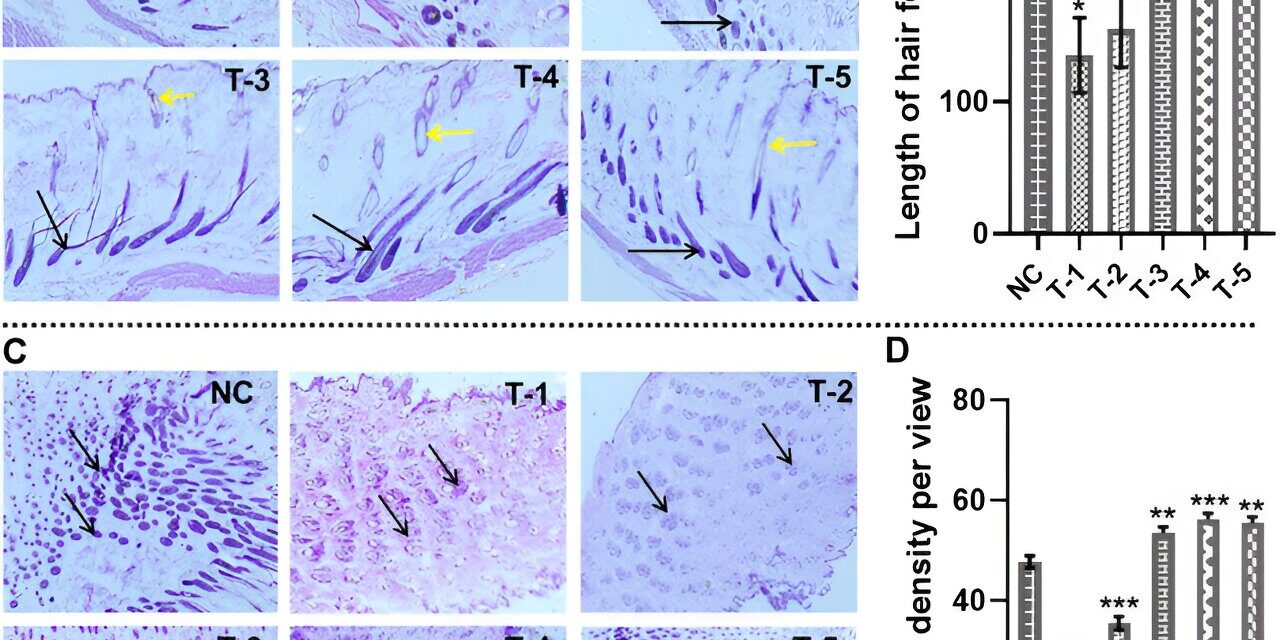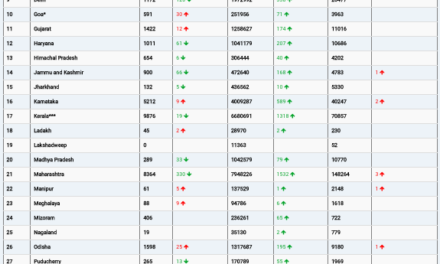University of Sheffield Scientists Unveil Potential New Treatment for Hair Loss
In a groundbreaking study, researchers from the University of Sheffield have discovered a potential new treatment for male pattern baldness, a condition that impacts up to 50% of men globally. The key to this promising development lies in a naturally occurring sugar, 2-deoxy-D-ribose (2dDR), which has been shown to stimulate hair regrowth in mice.
Published in the journal Frontiers in Pharmacology, the study highlights the significant role of 2dDR, a sugar involved in crucial biological processes across both animals and humans. Over the past eight years, a collaborative team from Sheffield and COMSATS University Pakistan has investigated how this sugar can aid in wound healing by promoting new blood vessel formation. Notably, during this research, they observed that hair around healing wounds grew at an accelerated rate compared to untreated areas.
To delve deeper, the scientists created a model of testosterone-driven hair loss in mice, mirroring the mechanism behind male pattern baldness in humans. Their findings revealed that a small dose of 2dDR led to the formation of new blood vessels, which in turn spurred hair regrowth.
The research suggests that 2dDR could be as effective as Minoxidil, the current FDA-approved drug for treating hair loss. However, 2dDR presents a potential alternative that leverages a naturally occurring substance.
Professor Sheila MacNeil, Emeritus Professor of Tissue Engineering at the University of Sheffield, commented, “Male pattern baldness is a widespread condition affecting men worldwide, and current treatment options are limited to just two FDA-approved drugs. Our research indicates that the answer might lie in using a natural sugar to enhance blood supply to hair follicles and promote hair growth. Although the research is still in its early stages, the results are promising and deserve further investigation.”
Professor (Associate) Muhammed Yar (T.I.) of IRCBM, COMSATS University Pakistan, added, “This naturally occurring deoxy ribose sugar is not only cost-effective and stable but can also be delivered through various gels or dressings. This makes it a compelling candidate for further exploration as a treatment for hair loss.”
The study, titled “Stimulation of Hair Regrowth in an Animal Model of Androgenic Alopecia Using 2-Deoxy-D-Ribose,” offers a fresh perspective on treating a condition that affects many men’s self-esteem and confidence. As researchers continue to explore this promising avenue, the potential for a new, effective treatment for male pattern baldness is becoming more tangible.
For more information, refer to: Muhammad Awais Anjum et al, Stimulation of hair regrowth in an animal model of androgenic alopecia using 2-deoxy-D-ribose, Frontiers in Pharmacology (2024). DOI: 10.3389/fphar.2024.1370833
Journal Information: Frontiers in Pharmacology












